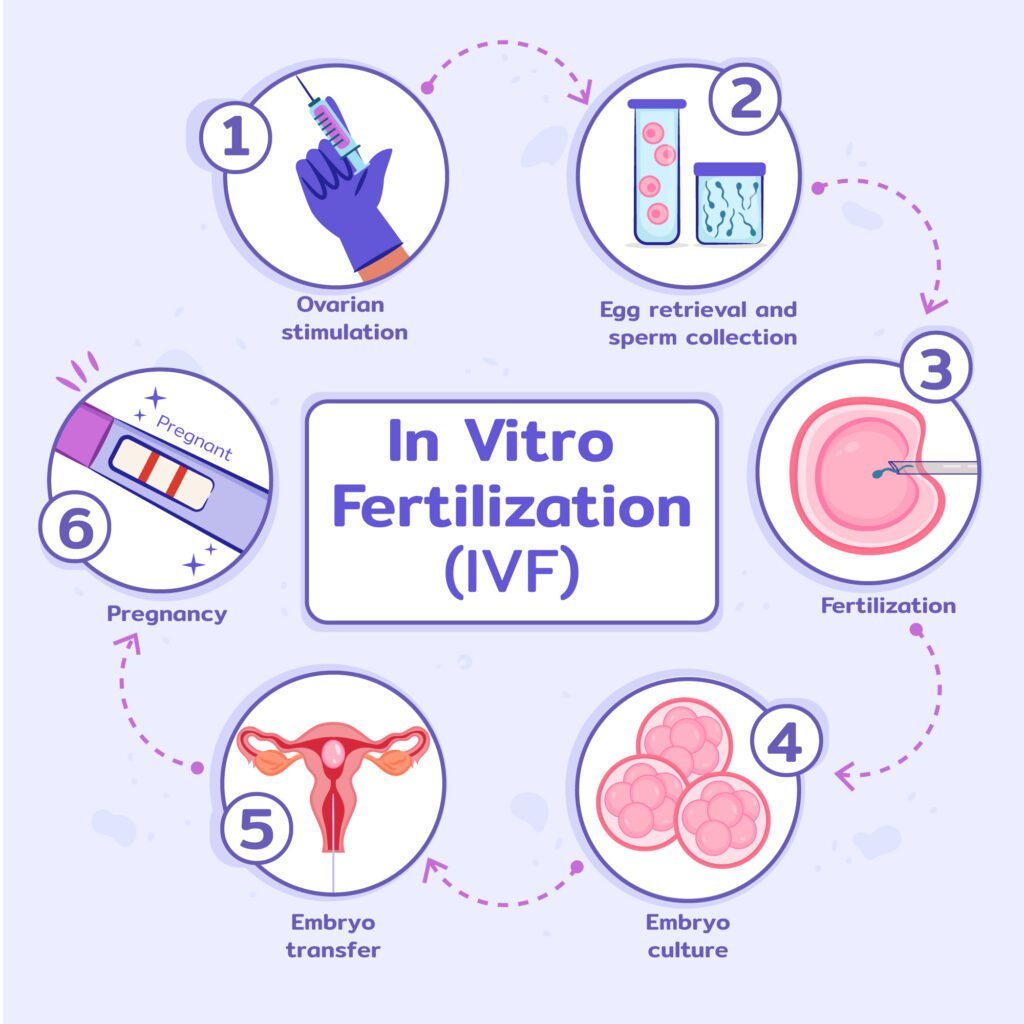The IVF Journey: Understanding the 6 Key Stages
 Embarking on an IVF journey involves traversing five distinctive stages, each contributing to the intricate process of assisted reproduction. Understanding these stages offers valuable insight into the multifaceted experience of pursuing parenthood through IVF.
Embarking on an IVF journey involves traversing five distinctive stages, each contributing to the intricate process of assisted reproduction. Understanding these stages offers valuable insight into the multifaceted experience of pursuing parenthood through IVF.What is IVF?
IVF, a well-known assisted reproductive technology (ART), offers a safe and effective approach to unite eggs and sperm in a laboratory, eventually leading to implantation in the uterus. We as Dr. Invitro highlight the procedure’s essence, involving the retrieval of eggs, fertilization in a lab setting, embryo development, and the transfer of a typically selected embryo into the uterus. Additional embryos, if produced, can be cryopreserved for future use.While IVF serves as a viable solution for addressing underlying causes of infertility such as endometriosis, male infertility, ovulation issues, and ovarian aging, it’s not necessarily the initial recommended option. Other treatments like ovulation-inducing medication, intrauterine insemination (IUI), and surgery may precede IVF.The IVF Process Comprises 5 Key Stages
Ovarian Stimulation
Your physician administers medications to stimulate the ovaries, encouraging multiple egg production over about 10 days. Regular ultrasounds and blood tests monitor follicle growth and estrogen levels.Egg RetrievalPerformed about 36 hours post “trigger shot” to mature eggs, this office-based procedure collects eggs via transvaginal ultrasound-guided aspiration. Sedation is provided, and post-procedure medication is prescribed for discomfort.Sperm Retrieval
Harvesting sperm may involve various techniques, even surgical options, depending on fertility factors. Semen samples are obtained from partners or donors.Fertilization
Fertilization occurs through conventional insemination or intracytoplasmic sperm injection (ICSI). The fertilized eggs are observed for up to 20 hours to confirm successful fertilization.Embryo Transfer
Embryo(s) are transferred into the uterus after two to five days. Hormone support aids the uterine lining. Post-transfer, normal activities can be resumed while monitoring for signs of embryo implantation.Pregnancy
Successful embryo implantation may result in pregnancy. Following a positive pregnancy test, ongoing care involves monitoring hormone levels and ultrasounds to ensure a healthy pregnancy.
Additional techniques like assisted hatching or preimplantation genetic testing (PGT) might be recommended at specific stages to enhance success rates.IVF’s success hinges on multiple factors, including age, infertility cause, and treatment stage. Despite a 55% live birth rate per egg retrieval in women. Monitoring, repeat tests, and multiple attempts might be necessary.It’s crucial to optimize health before considering IVF. While it has enabled many women to conceive, it’s essential to explore various fertility treatments and consult with healthcare professionals to determine the most suitable path forward.